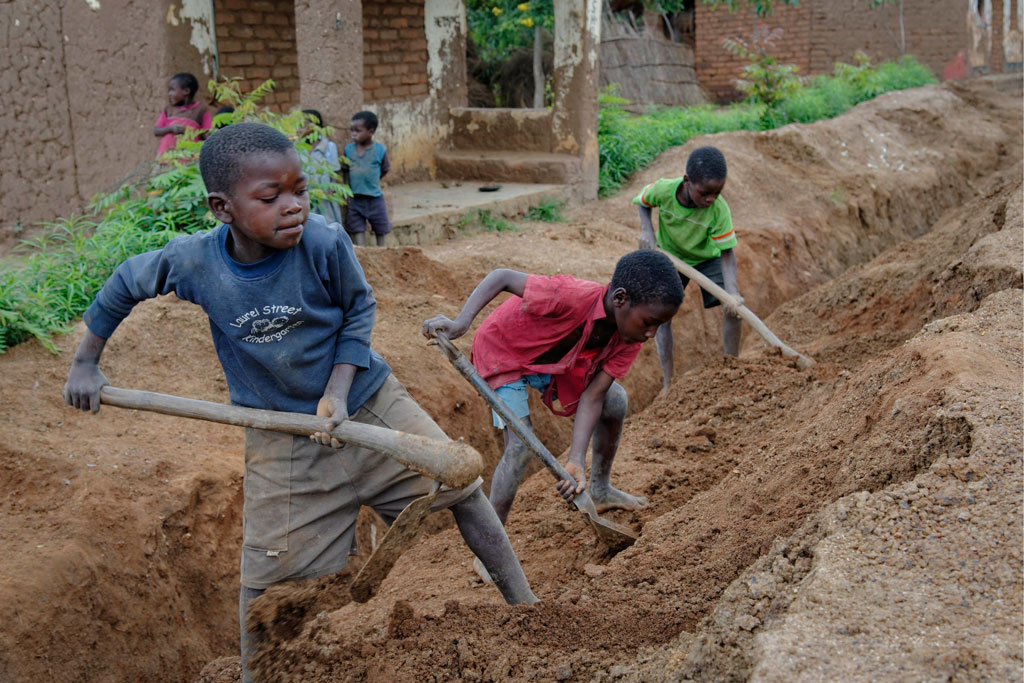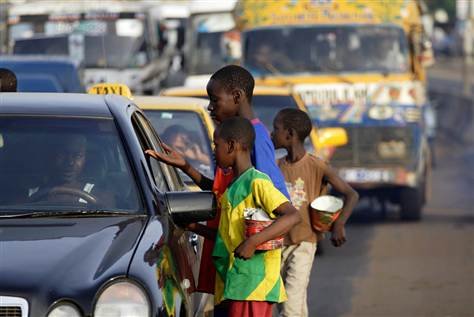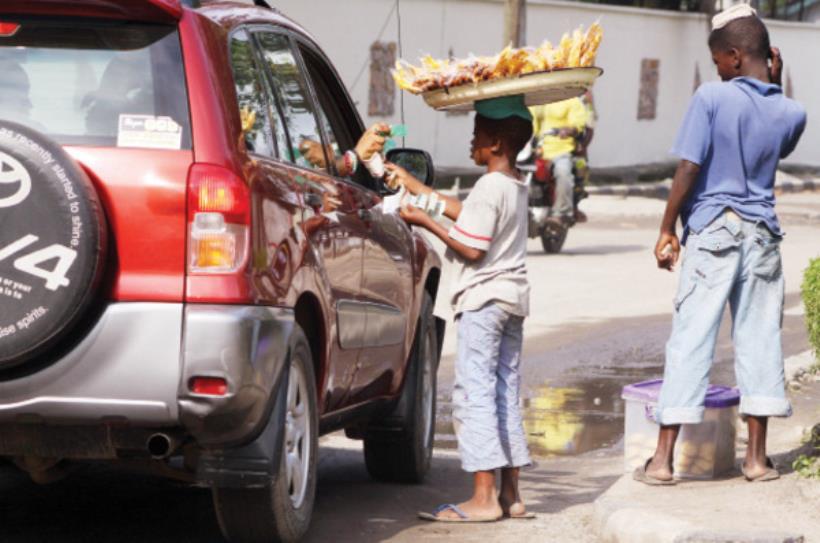This post is inspired by @familyprotection due to the great job they are doing to ensure Child Protection.
It is sad to note that in the 21st century, child labour is still a major problem in my country, Nigeria. Despite the creation of agencies by the government, child labour is still rampant, especially in the northern part of the country. News of children crushed by heavy-duty vehicles and cars while hawking on the streets abound in the media. Children engage in unpleasant forms of child labour such as quarrying granite and gravel, forced begging, agricultural workers and sexual exploitation.
According to a 2016 UNESCO Institute of Statistics data, only 76.2% of children between ages 5 to 14 attend school while 31.1% of the same age bracket are made to work. 26.8% combine school and work, most of whom are responsible for their own upkeep. It is also difficult for Child labor enforcement data to be accessed, and social programs are not sufficient to address the scope of the problem.
Variations of child labour in Nigeria
Child begging
In the northern part of Nigeria, families send young boys to live with mallams who are expected to teach them Arabic. These children, known as almajiris are forced to beg on the streets and surrender the money to their guardians. There are also poor parents, especially mothers who send out their children to beg and harass passersby, while they monitor them from a distance.
Sexual Exploitation
In cities such as Calabar and Port Hacourt, law enforcement agencies have discovered teenage sex factories, where randy men and paedophiles come to satisfy their sexual urge. These factories are operated by women who lie about certain charities while taking the children away from their parents.
Agricultural workers
While their peers are in school learning, some children are used in farms as workers, especially by their uneducated parents and those in search of cheap labour. In this informal sector of the economy, provisions of the Labour act are neither monitored nor enforced.
Hawking
It is not uncommon to see children selling on the streets "to support their families", as they put it. The most dangerous are those who sell to motorists and road users on the highways. Most times, they are usually hired and paid commissions at the end of the trading day.
Bus conductors
Bus conductors are quite popular in Nigeria. They collect transport fares from commuters and call out bus-stops. It is a common sight to see teens working as conductors, right after schools.
What I discovered
Late last year, I was commissioned to research and write an article on how child labour has been unchecked and what I discovered was worrisome. I found out that Child Protection Agencies established by the government were benefiting from child labour in my country.
The Federal Government had created the National Agency for the Prohibition of Trafficking in Persons to curtail trafficking, prostitution and child labour. A National Social Protection Program was later launched in 2016 to further the job of NAPTIP. However, these agencies are doing the opposite - promoting child labour and amassing wealth from it.
I learnt that top officials of Child Protection Agencies go to the rural areas, where the poor live. They disguise as non-profit and charity organisations, telling tales of how their children can be granted scholarships and a better life. These unscrupulous persons convince the parents that they would also be paid monthly if they part with their children.
These children are transported to the cities, where their faiths are decided. Some of them are sold to merchants at huge prices, others are made to work for these Child Protection Agencies' officials as slaves. Some of the work they are made to do include prostitution, pickpocketing, hawking, among other terrible things.
I was furious at the revelation and vowed to reveal it to Nigerians, however these government officials used their influence and might against me. I escaped assassination twice. Even though I refused to succumb, my Editor refused to publish the story and I was also fired.
However, I now work with another media company and my story will be published in March. It will surely reveal many hidden activities of these officials and will shake the country for a while.
References
Bureau Of International Labor Affairs
Amaefule, E. "Nigeria Has Eight Million Child Labourers – NAPTIP." punchng.com [online] June 2, 2016
Anumihe, I. "Kid Beggars Lay Siege to Abuja." The Sun, Lagos, June 8, 2016
"Nigeria: NAPTIP Discovers Centres for Pornographic Performance in Sokoto."



Waw.... This is a wonderful write up my friend and thank you for exposing the shady deals that some agencies do to young people just to get more money. Well done sir
Downvoting a post can decrease pending rewards and make it less visible. Common reasons:
Submit
Thank you very much
Downvoting a post can decrease pending rewards and make it less visible. Common reasons:
Submit
Excellent post @shodiya it's important for us all to keep up with what's going on in other parts of the world, child exploitation is everywhere, I don't think people fully realise how common it actually really is!!
Downvoting a post can decrease pending rewards and make it less visible. Common reasons:
Submit
Oh yes, people are not aware that it is rampant in some countries, especially developing ones. It is our job to make it known and fight it. Thanks.
Downvoting a post can decrease pending rewards and make it less visible. Common reasons:
Submit